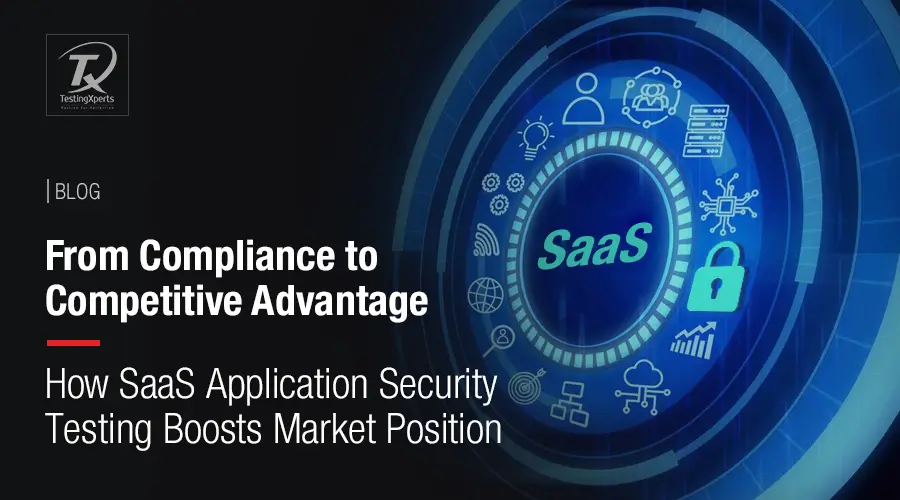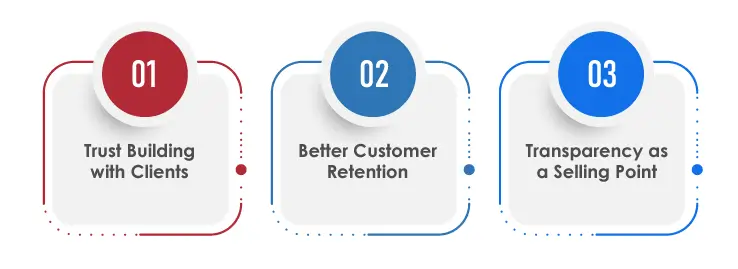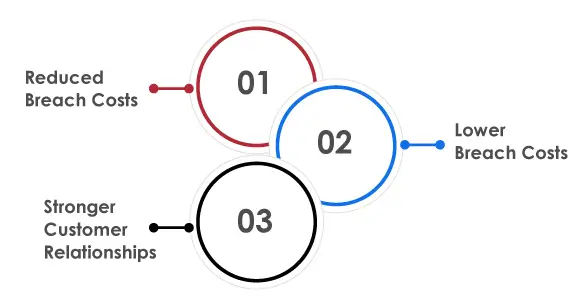Recommended Blogs
From Compliance to Competitive Advantage: How SaaS Application Security Testing Boosts Market Position

- From Obligation to Opportunity: Turning SaaS Security into a Marketing Advantage
- The Financial Upside: Reducing Breach Costs, Enhancing Customer Trust
- SaaS Security Testing as a Differentiator in B2B and B2C Markets
- How Tx Helps Businesses Transform Compliance into Competitive Strength
- Conclusion: Security as a Cornerstone of Business Growth
53% of organizations experienced a data breach including a SaaS application in the last two years. This highlights an undeniable trend that cybersecurity is not just an item to check off in the list, but a business imperative, mainly for SaaS providers.
The SaaS companies must go beyond basic compliance to sustain. Enterprises are now discovering that SaaS application security testing is more than a regulatory checkbox, a powerful tool that can enhance the company’s market position. In this blog, we will talk about how effective security testing transforms compliance into a competitive advantage, offering companies the upper hand in trust, profitability, and loyalty.
The Compliance Imperative: More Than Just a Regulatory Necessity
The regulatory frameworks like PCI-DSS, SOC 2, and GDPR ask for rigorous security measures for SaaS applications. Non-compliance may result in steep fines, legal challenges, and damage to a brand’s reputation. For many years, businesses considered compliance as a costly obligation, something to be merely “checked off” and avoid penalties.
However, there is a shift in the perspective. Compliance, when investigated strategically, can be the foundation of a security strategy that accelerates a brand’s value proposition. Beyond avoiding penalties, effective security measures showcase to clients that your business is proactive in protecting their data and set the stage for differentiation.
From Obligation to Opportunity: Turning SaaS Security into a Marketing Advantage

The businesses that are forward-thinking will not see security as just a way to “stay compliant”. They identify it as an opportunity for market differentiation. Here’s how:
- Trust Building with Clients – For SaaS businesses, trust is crucial. Customers need assurance that their data is safe, and security testing offers tangible proof. Marketing your commitment to the highest-level security reassures potential clients that you value their security and privacy.
- Better Customer Retention – When customers trust your SaaS product’s security, they’re likely to stay loyal to your brand. With the growing concerns over data breaches, emphasizing your commitment to security in your sales and marketing efforts boosts retention rates.
- Transparency as a Selling Point – Regular audits, vulnerability scans, penetration testing – turns out to be a marketing message in itself. It signals to clients that you are transparent and committed to continual improvement.
Security becomes a differentiator in the markets where services and products are commoditized. When two SaaS vendors offer similar features, the one that can guarantee a more secure environment will have a distinct advantage.
The Financial Upside: Reducing Breach Costs, Enhancing Customer Trust

SaaS security is beyond protection, it is about growth and profitability. Data breaches can cost organizations millions in direct damages, lost business and legal fees. But beyond those immediate costs, breaches damage trust, leading to long-term revenue losses.
On the other side, effective SaaS application security testing migrates these risks, increasing the bottom line. The financial benefits include:
Reduced Breach Costs: By identifying vulnerabilities early, organizations can avoid the substantial costs related with post-breach damage control. This includes everything from regulatory fines to the costly process of restoring trust.
Lower Breach Costs: By identifying vulnerabilities early, companies can avoid the substantial costs associated with post-breach damage control. This includes everything from regulatory fines to the expensive process of restoring trust.
Stronger Customer Relationships: Research shows that organizations with a proven commitment to security have stronger relationships with clients, maintaining higher customer value (LCV). When customers feel safe, they’re more likely to recommend your service, upgrading brand reputation and leading to organic growth.
SaaS Security Testing as a Differentiator in B2B and B2C Markets
When it comes to the competitive benefit of SaaS security testing, it spans both B2B and B2C markets:
B2B Market – For enterprises selling SaaS solutions to the other companies, particularly enterprises, security is non-negotiable. Clients seek assurance that they won’t be exposed to vulnerabilities through your software. Advertising your security credentials and testing procedures can make your company safe.
B2C Market – The consumer-facing businesses often pay attention to usability and features, and security is becoming a top priority. Consumers are continuously savvy and aware of the privacy concerns. A SaaS provider that markets security as a core value can stand out in a crowded marketplace by comforting user concerns about data misuse.
How Tx Helps Businesses Transform Compliance into Competitive Strength
Tx professionals have expertise in helping businesses not just meet but exceed security standards through comprehensive SaaS application security testing. Our solutions integrate cutting-edge tools and methodologies to deliver SaaS applications that are compliant to PCI-DSS and other relevant frameworks.
Here’s how Tx can empower your business:
Customized Testing Solutions:
Every SaaS application is different; our professionals do custom security tests that identify vulnerabilities particular to your architecture and business model. We collaborate with your internal teams to draft detailed remediation plans, ensuring minimal disruption.
Regular Monitoring:
Our services include regular monitoring to remain compliant whenever new threats evolve. We provide actionable insights and timely reports, so your business is ahead of the compliance requirements, and not compromising agility.
Proactive Risk Management:
Apart from testing for compliance, we help you recognize potential market risks, offering you the insights required to protect your market position. We highlight the areas where compliance can improve your market competitiveness, and we develop an action plan to capitalize on the opportunities. In addition to this, we offer training and best practices to strengthen your internal security posture.
Conclusion: Security as a Cornerstone of Business Growth
SaaS security is not an option anymore, it is a necessity. It is about building trust and maintaining a competitive advantage.
When you invest in comprehensive SaaS application security testing, businesses can lower the risk, enhance customer relationships, and stand out in the marketplace.
The enterprises who treat security as a strategic pillar of growth – and not an operational necessity – are the ones who will grow in the future. At Tx, we help businesses transform compliance from a legal need into a marketing powerhouse, enabling you to safeguard your data, reputation, and growth.
Do you wish to turn security into your competitive edge? Contact Tx today and learn how we can help your business achieve both compliance and market leadership.
FAQs
SaaS Application Security Testing involves evaluating cloud-hosted software (Software-as-a-Service) for vulnerabilities, misconfigurations, and data protection gaps. It includes dynamic testing, static code analysis, and configuration audits to ensure compliance with security standards like OWASP, SOC 2, and GDPR.
Common risks include:
-
Data exposure due to multi-tenancy flaws
-
Insecure APIs
-
Misconfigured identity and access controls
-
Lack of encryption (at rest or in transit)
-
Insufficient logging and monitoring
-
SAST/DAST tools (e.g., Checkmarx, Burp Suite)
-
Cloud Security Posture Management (CSPM)
-
Penetration testing tailored for SaaS threats
-
Security configuration reviews (IAM, logging, encryption)
-
Compliance automation platforms (e.g., Drata, Vanta)
Discover more
